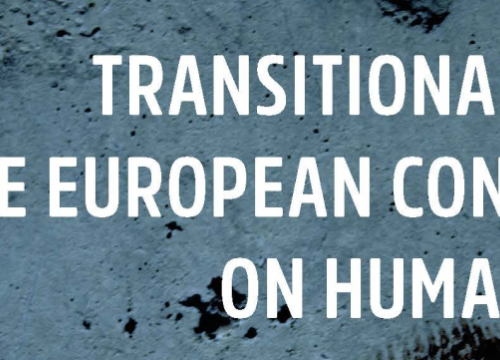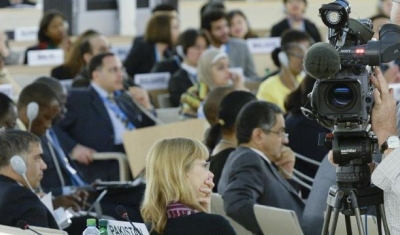Transitional Justice and the European Convention on Human Rights


Geneva Academy
30 October 2017
Our new publication Transitional Justice and the European Convention on Human Rights systematically reviews and critically discusses the evolving ‘transitional’ jurisprudence of Europe’s main guardian of human rights – the Court in Strasbourg – across highly contentious issues such as amnesty, property rights, along with institutional reform and vetting.
Published in cooperation with the Transitional Justice Institute at Ulster University and written by one of the field’s leading scholars, Fionnuala Ní Aoláin, it addresses head-on a crucial – yet so far neglected – topic: the question of the relation between transitional justice and the European Convention on Human Rights (ECHR).
Filling a Research Gap
While the ECHR system as one of the world’s leading human rights regimes has been the subject of intense study, its role in promoting transitional justice concerns has received surprisingly little scholarly attention – a neglect that is all the more striking when one considers the considerable amount of scholarly work that has been dedicated to the Inter-American human rights system and its impact on transitional processes in the Americas.
‘Our hope is that this publication will generate, both inside and outside academia, a much-needed debate about the ECHR and its role in transitional contexts‘ underlines Frank Haldemann, former Co-Director of the Master in Transitional Justice at the Geneva Academy.
Setting Standards for Overseeing Transitions to Peace and Democracy
‘This publication highlights that we can profitably think of the ECHR system as a ‘transitional instrument’ positively shaping political transitions and conflict resolutions on the European continent’ underlines Thomas Unger, former Co-Director of the Master in Transitional Justice at the Geneva Academy.
While the Strasbourg Court has played – and continues to play – an under-appreciated role in setting standards for and overseeing transitions to peace and democracy in places as varied as Northern Ireland, Bosnia, Turkey and Russia, the publication warns against self-complacency and insists on the need to constantly rethink the Convention in the face of ever-expanding challenges.
‘The Convention is a tool giving concrete language to human rights claims in the domestic sphere, but one that needs adjustment and creative expansion if it is to come to meet the expectations that have been set for it’ stresses the author.

About the Author
Fionnuala Ní Aoláin holds the Dorsey and Whitney Chair in Law at University of Minnesota Law School and is Professor of Law at Ulster University’s Transitional Justice Institute. She is a Guest lecturer within the Geneva Academy’s Master in Transitional Justice, Human Rights and the Rule of Law. Since August 2017 she is also the UN Special Rapporteur on the promotion and protection of human rights and fundamental freedoms while countering terrorism.
Professor Ní Aoláin is recognized as a leading expert in the fields of international law, human rights law, national security law, transitional justice and feminist legal theory and has published widely on these issues.









